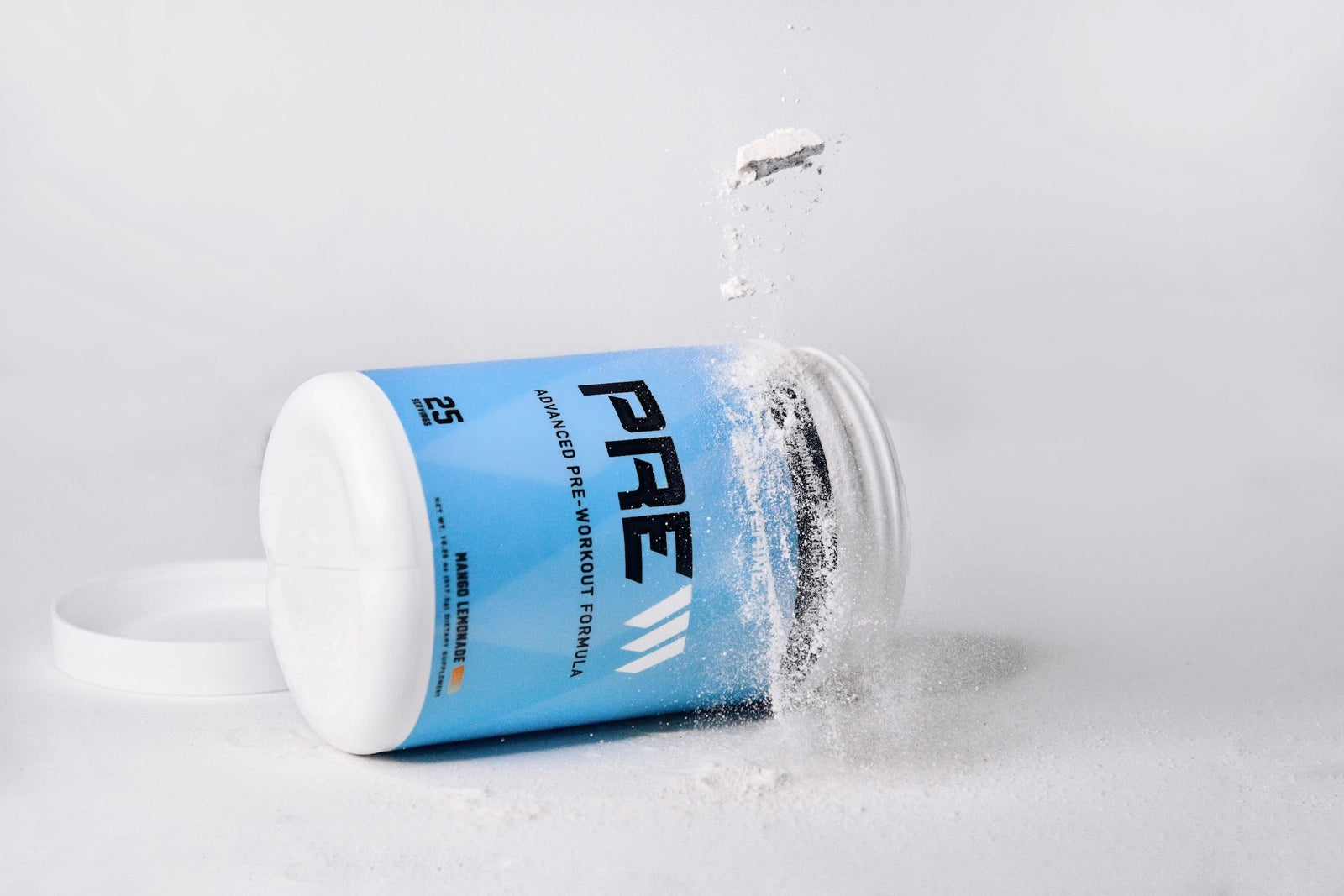Introduction: The Underrated Powerhouse in Your Performance Stack
You’ve probably heard all about creatine, protein, and pre-workouts—but there’s another clinically-backed compound making waves in the performance world: Betaine Anhydrous.
Also known as trimethylglycine (TMG), betaine is a naturally occurring compound found in foods like beets and spinach. But don’t let its humble origins fool you—this methyl-donating powerhouse has been shown to boost strength, enhance power output, optimize body composition, and even support creatine production at the cellular level.
Whether you’re training for PRs in the gym, chasing peak athletic output, or simply looking to lean out without sacrificing performance, Betaine might be the missing link in your supplement stack.
In this guide, we’ll break down what it is, how it works, and why it deserves a permanent spot in your daily performance protocol.
What Is Betaine?
A Powerful Methyl Donor for Strength and Body Composition
Betaine anhydrous, also known as trimethylglycine, is a naturally occurring compound first isolated from sugar beets. It can also be found in spinach, beets, whole grains, and is produced as a byproduct of choline metabolism. Structurally, betaine is composed of the amino acid glycine bonded with three methyl groups—hence the name trimethylglycine.
Betaine plays two major roles in the body:
-
Acts as a methyl donor in the methylation of homocysteine into methionine
-
Functions as an organic osmolyte, helping cells maintain fluid balance and volume under stress
Because of its role in methionine metabolism, betaine may enhance creatine synthesis, improve muscle hydration, and positively influence strength and performance. Emerging evidence also suggests it may improve lipid metabolism and fat oxidation.
📚 Reference: Craig, 2004 – Betaine in human nutrition
Mechanism of Action: How Betaine Works
Betaine functions primarily through two mechanisms: methyl donation and cellular osmoregulation. As a methyl donor, betaine donates methyl groups in the conversion of homocysteine to methionine, an essential process that supports creatine biosynthesis—a key factor in muscle energy and performance. Elevated methionine levels may enhance muscle protein synthesis and recovery.
In addition, betaine acts as an organic osmolyte, helping to regulate cellular hydration and fluid balance, especially under metabolic stress, such as intense exercise. This osmotic effect helps maintain cell integrity, support muscular endurance, and optimize anabolic signaling. Some evidence also suggests that betaine can influence fat metabolism by promoting preferential fatty acid oxidation and improving insulin sensitivity, potentially leading to improved body composition and performance outcomes during resistance training programs.
📚 Reference: Craig, 2004 – Betaine in human nutrition, Apicella et al., 2013 – JISSN
Benefits of Betaine Anhydrous
1. Improves Strength
Betaine’s methylation of homocysteine into methionine may increase endogenous creatine production, which can support muscle protein synthesis and explosive strength output.
📚 Reference: Cholewa et al., 2013 – Journal of Strength and Conditioning Research
Key Study:
A two-week trial by The College of New Jersey tested 24 healthy male subjects split into betaine and placebo groups. Subjects taking 2.5g of betaine daily showed:
-
Increased total reps performed
-
Improved peak power output
-
Greater endurance compared to placebo
✅ Conclusion: Betaine supplementation may improve muscular endurance and volume capacity during resistance training.
2. Optimizes Body Composition
Betaine may contribute to reductions in body fat and increases in lean muscle mass, possibly by enhancing creatine availability or stimulating lipolysis (fat breakdown).
📚 Reference: Apicella et al., 2013 – JISSN
Key Study:
In a double-blind study published in the Journal of the International Society of Sports Nutrition, 23 female collegiate athletes participated in an 8-week resistance program while supplementing with 2.5g/day of betaine or placebo.
Results showed:
-
Significant increase in lean muscle mass
-
Reduction in body fat percentage
-
Enhanced strength in squat, bench, and vertical jump
✅ Conclusion: Betaine may improve performance and support favorable body recomposition.
3. Increases Peak Power
Peak power is a vital metric for both strength and endurance athletes. It refers to the maximum energy output over a short burst, requiring strength, speed, and neuromuscular coordination.
📚 Reference: Hoffman et al., 2009 – JISSN
Key Study:
In a sprint-based cycling study with 16 recreational athletes, subjects consumed:
-
591ml of either placebo or a carbohydrate-electrolyte beverage with 0.42% betaine (~2.5g/day)
-
Administered twice daily for 7 days
Results:
-
Significant increases in mean power, average power, and max peak power across all subjects after betaine supplementation.
📚 Another study by University of Connecticut (UCONN) found that 1.25g of betaine, twice daily for 14 days significantly increased force and power output in resistance-trained men.
✅ Conclusion: Betaine supports increased energy transfer and output during short, high-intensity efforts.
Betaine Anhydrous Dosage
While dietary sources (spinach, quinoa, beets) provide 100–400 mg/day, this is far below clinically effective levels.
Recommended Supplement Dosage:
-
2.5 grams per day for 14 days to 6 weeks
-
Ideal when taken daily, split into 1.25g twice per day
📚 Reference: JISSN – Cholewa et al., 2013
✅ Tip: Look for Betaine Anhydrous or Trimethylglycine (TMG) in your pre-workout or performance stack.
Conclusion: Betaine Is Small But Mighty
In a world full of trendy supplements and unproven ingredients, Betaine Anhydrous stands out—not because it’s flashy, but because it works.
From boosting strength and muscular endurance to supporting fat loss and lean mass retention, betaine has been consistently backed by research as a true ergogenic aid for athletes, bodybuilders, and anyone pushing their physical limits.
Its mechanism is simple but powerful—supporting methylation, aiding creatine production, and enhancing cellular hydration—leading to better lifts, longer workouts, and more efficient recovery.
Want to level up your training, performance, and body composition?
Stack smart. Supplement with betaine. Perform stronger.
Find similar articles:
Supplements


